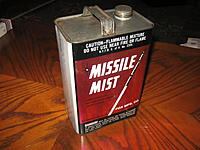etpm
Veteran Member
- Joined
- Jun 30, 2021
- Messages
- 2,344
- Location
- Whidbey Island, WA
- Tractor
- Yanmar YM2310, Honda H5013, Case 580 CK, Ford 9N
I know someone here can help me with this question. Maybe the question should be spark ignition versus compression ignition, but I will just use gasoline spark ignition vs diesel compression ignition. Anyway, gasoline engines are very sensitive to air/fuel ratios. For example, gasoline engines when run too lean can run way too hot and this can result in pre-ignition, burnt valves, and melted pistons. I have personal experience with a melted piston crown, darn it. So the air/fuel mixture is closely controlled. Diesel engines don't control the air at all, the engines are always sucking in as much air as possible. This means that the air/fuel mixture is all over the place. So why is it that a compression ignition diesel engine can tolerate the very lean condition at low throttle settings? And, from what I have read here, diesel engines run hotter at higher throttle settings and running them at too low of a throttle setting, such as excessive idling, can cause problems such as "wet stacking". The reason being that the engine is running too cool and all the fuel is not burning completely. It's just idle curiosity on my part and I figure a good answer is likely to be found here.
Thanks,
Eric
Thanks,
Eric
